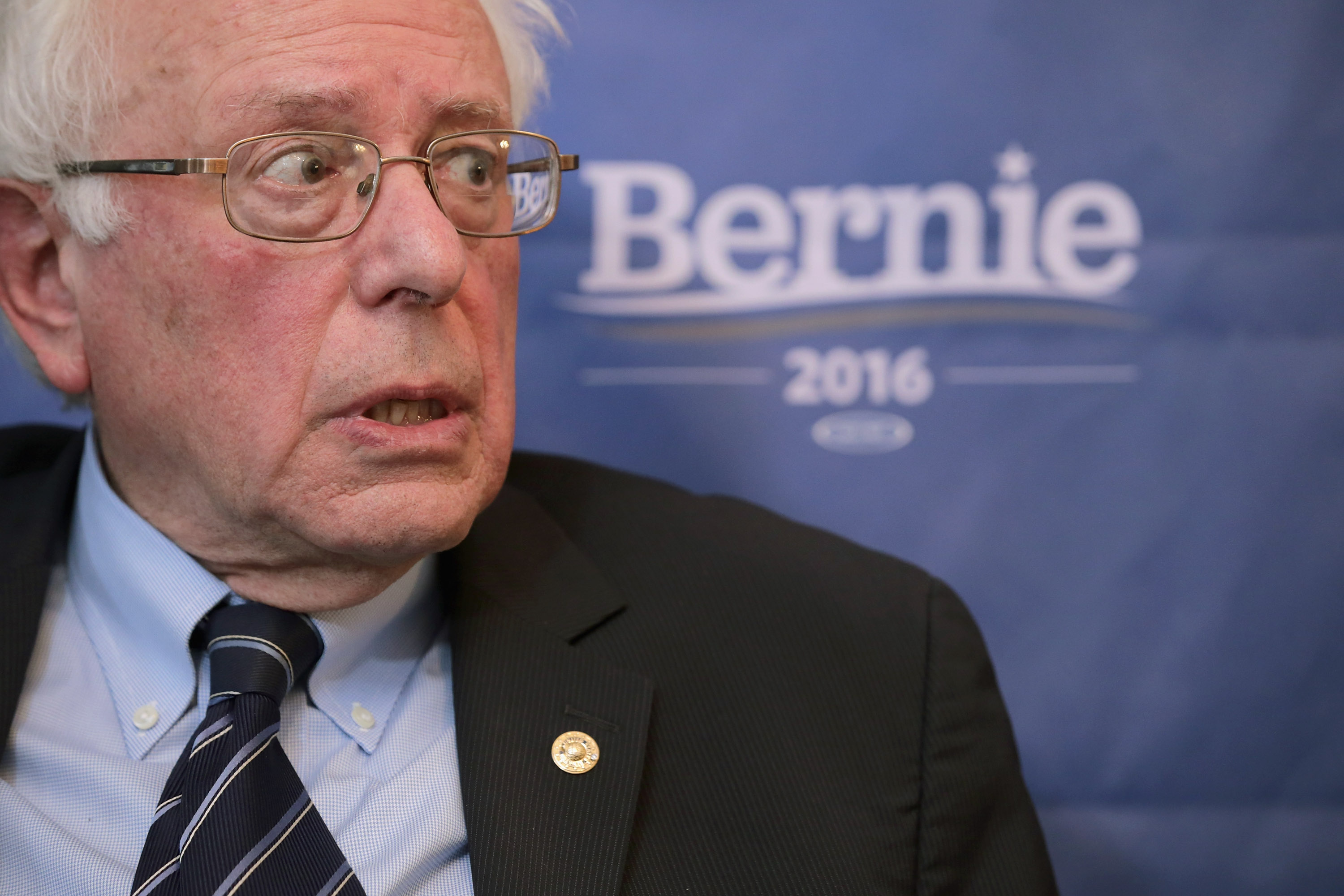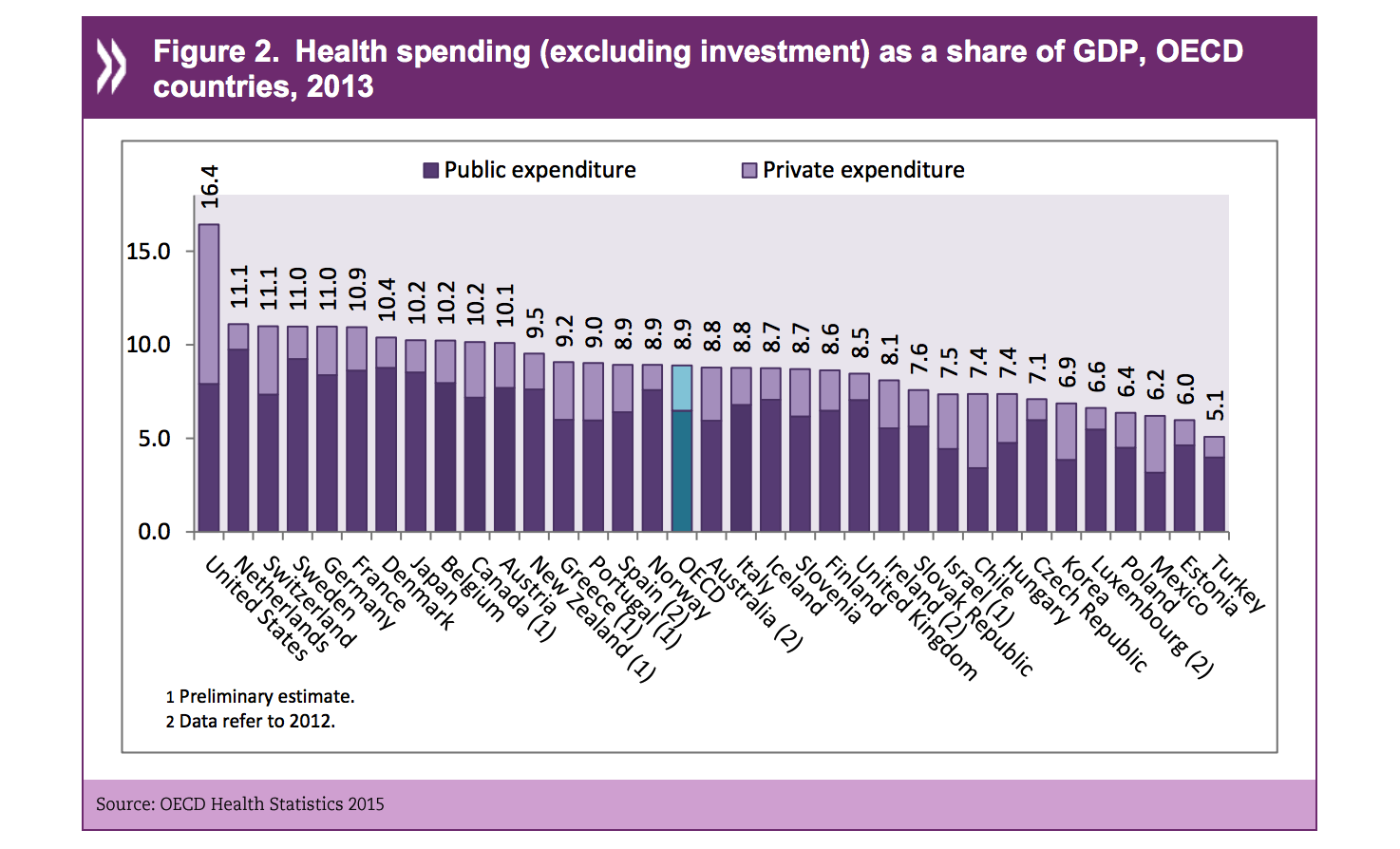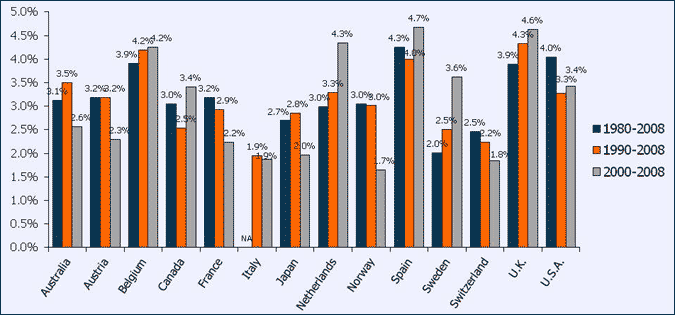How a progressive would critique Bernie Sanders' health care plan
Bernie Sanders' plan is a bad idea, just not for the reasons Hillary Clinton gives


A free daily email with the biggest news stories of the day – and the best features from TheWeek.com
You are now subscribed
Your newsletter sign-up was successful
Whether to push for a single-payer health care system has become a massive flashpoint in the 2016 Democratic race between Bernie Sanders and Hillary Clinton. And I find myself occupying a weird place in it. On the one hand, I basically agree that Sanders' single-payer proposal is unrealistic, and that we'd be better off building on ObamaCare. On the other hand, I am acutely aware of how grotesquely cynical Clinton's attack on Sanders' proposal was.
So I think there's an adult critique Clinton could make of Sanders' single-payer push. But she hasn't really made it yet.
Let's begin with the most basic point: The United States spends gobs more on health care than any other advanced western country. Canada and France, who have the closest thing to the single-payer system Sanders is proposing, spend 10 and 11 percent of their economy on health care, respectively. The United States spends 16 percent.
The Week
Escape your echo chamber. Get the facts behind the news, plus analysis from multiple perspectives.

Sign up for The Week's Free Newsletters
From our morning news briefing to a weekly Good News Newsletter, get the best of The Week delivered directly to your inbox.
From our morning news briefing to a weekly Good News Newsletter, get the best of The Week delivered directly to your inbox.

When you look at health care spending per person, it's the same story: We're an insanely expensive outlier.
A big part of this is that prices are just out of control. In America, MRIs cost way more, drugs cost way more, hospital stays cost way more, hip replacements cost way more. And it's basically impossible to find clear evidence that we get anything — in terms of better health outcomes for our population — in exchange for all this extra money. By a lot of metrics, we do worse.
But there's a key distinction hiding in there that often gets lost. We're talking about the cost level here, but there's also the rate of cost growth. France and Canada's system tend to do better at maintaining a slower rate of growth than the U.S. But not that much better. In fact, the U.S. has gone through patches where it's grown as slowly as anyone.

They achieve this through all the benefits of single-payer that its advocates point to: reducing administrative overhead, giving the government bargaining power as the sole buyer, etc. And had America installed a single-payer system back in the 1940s, when our cost level was the same as France or Canada's, we could've had their same level of spending now. As it is, the damage has been done, and we're trying to force change on a vastly different system.
A free daily email with the biggest news stories of the day – and the best features from TheWeek.com
There's basically no evidence to suggest single-payer can drop preexisting cost levels. To do that, the government would have to massively and rapidly cut the income enjoyed by hundreds of powerful hospitals and companies, and hundreds of thousands of doctors and providers. This would cause unprecedented economic upheaval, borne primarily by powerful upper class voting blocks and interests.
It would also force the issue of what drugs and procedures to cover. Single-payer advocates focus on holding down costs by telling suppliers "no" more often, in order to tell consumers "no" less. Which isn't wrong, but there's a limit to how far that idea can take you, because telling suppliers and consumers "no" are really flip sides of the same coin.
To bargain a health care provider down to a lower cost, you have to ultimately be willing to walk away from the purchase — which under a single-payer system means the government decides to simply not provide Americans with that particular medication or treatment or whatever. That is, to put it mildly, a touchy subject. Even if you gave the government bargaining power over all health care purchases in the economy (like France and Canada basically do) you can't escape that basic reality. Sanders' proposal elides all of this, describing incredibly generous coverage with no cost sharing at all.
This is all how problems of economic distribution become problems of political power: A movement that could make all this happen would be a movement with the power to do virtually anything. It would be the end of the fight, not the beginning.
To get its numbers, Sanders' plan assumes that introducing a single-payer system would immediately create a massive slowdown in health care spending, squeezing the per person cost level until it's basically even with Canadian levels within a decade. It's a remarkably optimistic notion that stretches the far bleeding edge of the possible.
Assuming Sanders is right, the new taxes (and likely deficit increases) required would certainly be economically do-able. But politically it would take Democratic majorities far beyond those of Obama in 2008. If he's wrong, the costs of the program would rocket far higher.
In fairness to her, Clinton has been approaching rough versions of this pitch since her initial criticisms: that even a gritty, real-world version of Sanders plan with more austere coverage would be a titanic political lift. Which is why incrementalism is going to be the way forward: We're going to change bits of the system at a time, leveraging new policies and new advantages one by one to bring down costs and dismantle the power of invested interests in health care. And then, when we've tackled all those problems, we will have created the space that allows us to pass single-payer.
So where does this leave Clinton?
Well the first thing to note is what she shouldn't do: She shouldn't be encouraging "make sure I get mine" anti-tax sentiment; she shouldn't be dissembling about how Sanders' plan would throw health care decisions to rightwing governors, and she shouldn't make weird implications that a push for Sanders' plan in the legislature would somehow undo ObamaCare.
What she does need is a health care platform of her own that genuinely builds on ObamaCare and sets her up for a strong initial bargaining position with any GOP Congress.
Any number of proposals could do this: Reintroducing the public option, expanding the generosity of ObamaCare's subsidies, simplifying and scaling-back cost-sharing, lowering Medicare's retirement age, or bulking up federal funding for Medicaid. But other than a gesture towards cost-sharing, Clinton's platform boasts none of this.
That leaves the Democrats with two flawed options when it comes to health care: one candidate who's wildly over-ambitious, and one who's wildly under-ambitious.
It's a question of which of those is the greater error.
Jeff Spross was the economics and business correspondent at TheWeek.com. He was previously a reporter at ThinkProgress.
